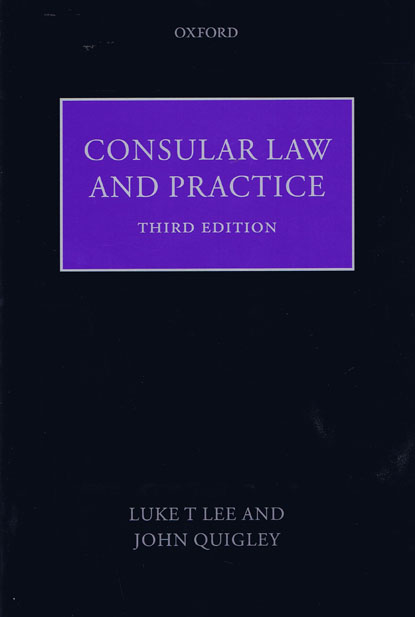
First published in 1961, Consular Law and Practice is a classic work of great interest and practical use to diplomats, consuls, and international lawyers.
When persons are out of their home country, consuls are their link with home and a source of assistance. The roles of consuls are many and varied. Consuls promote commerce between the home country and the host country and assist businesspeople in making contacts and in completing commercial transactions. Consuls also handle problems that arise for seafarers and merchant shipping vessels of the home country when they are in port in the host country. When a home country citizen dies while in the host country, consuls may facilitate burial or shipment of the remains home, or deal with the person's estate. Consuls assist individuals arrested on a criminal charge in the host state by visiting them in jail, advising them about the legal system of the host state, and helping to find them a lawyer. If the person is convicted, consuls visit them in prison and may help to secure a transfer to a prison in the home country.
This fully updated third edition explains consular privileges and immunities and how consular functions are handled in time of peace and war, when the receiving state experiences civil war, or when the sending and receiving states break off diplomatic or consular relations. It provides valuable background by describing how consular law developed historically and how it became solidified in 1963 in the Vienna Convention on Consular Relations. It explores the many bilateral consular treaties which supplement the Vienna Convention, examines the traditional and changing role of consuls, explains diplomatic privileges and immunities, and discusses the function of consuls as ambassadors in cultural and scientific exchange.
New to this edition: